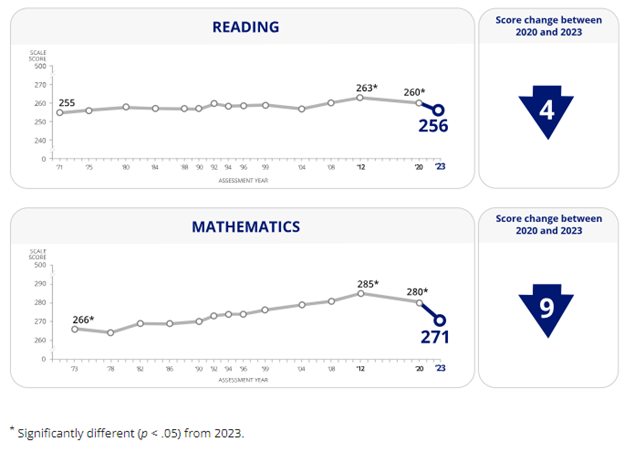Tag: achievement gap

Long-term trend NAEP brings more bad news
The National Assessment of Educational Progress released Long Term Trend data for 13-year-old students last week. On these exams, 10 points approximately equals a grade level worth of average academic progress. Mathematics achievement has dropped 14 points and reading seven points since 2012. The COVID-19 pandemic accelerated a pre-existing decline.... READ MOREBright spots and challenges for Florida NAEP 2022
NAEP released 2022 state and large urban district data...
READ MOREBy all means, keep moving
I read the new American Federation for Children/Step Up for...
READ MOREAmerican achievement gaps in international context
The Economist published an interesting article recently titled, “How Chile...
READ MOREFL schools roundup: Charters, private schools, Florida Virtual & more
Charter schools: Three years and a court battle later, Odyssey Space...
READ MOREFlorida schools roundup: Catholic schools, charters, magnets & more
Catholic schools: Catholic leaders hail small growth in school enrollment...
READ MOREFlorida schools roundup: Charters, digital ed, homeschooling & more
Charter schools: A Florida House subcommittee looks at having the...
READ MOREPlenty of upside for AP push
Every few months, a major media outlet writes an expose...
READ MORELow-income students need more resources to close achievement gaps
The latest Florida Department of Education report on the tax...
READ MOREA little context for a rough patch in Florida ed reform
Between 2011 and 2012, the number of Florida high school...
READ MOREA good education is a religious endeavor
Editor’s note: Craig S. Engelhardt is a former teacher and...
READ MORE

